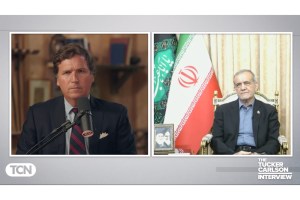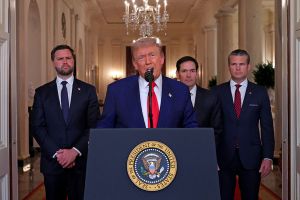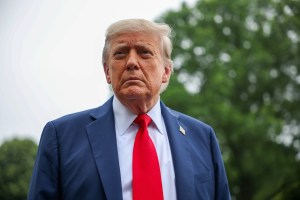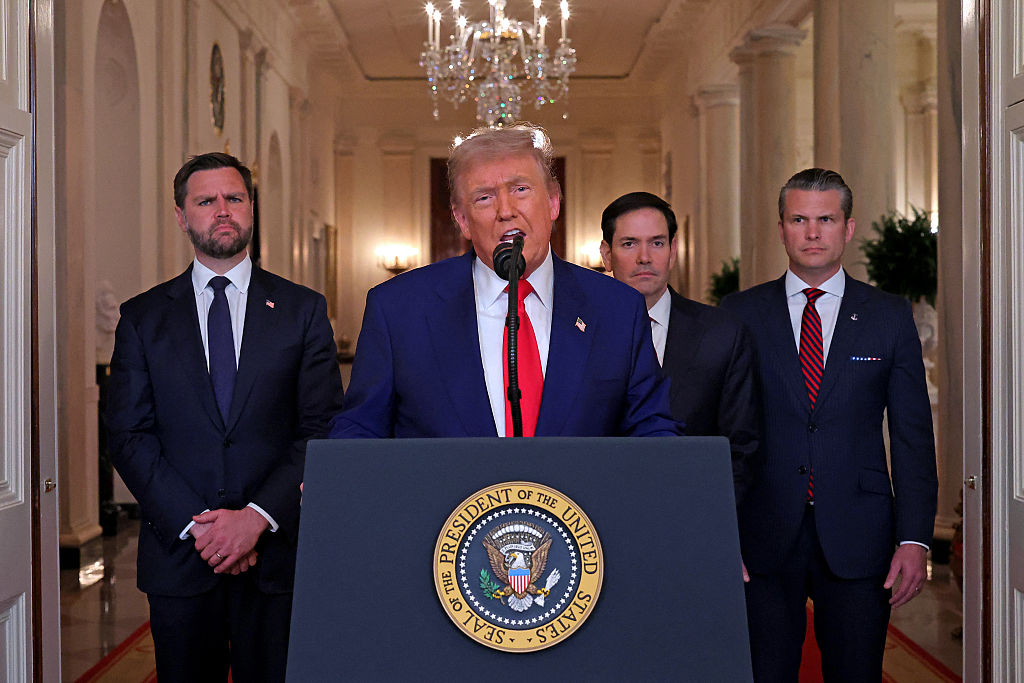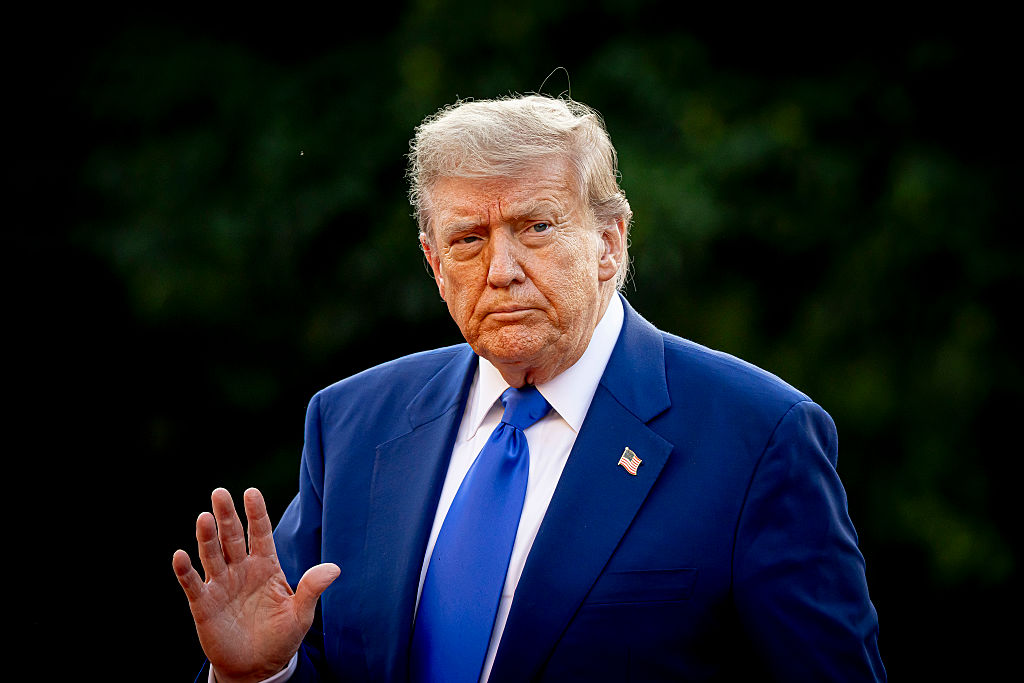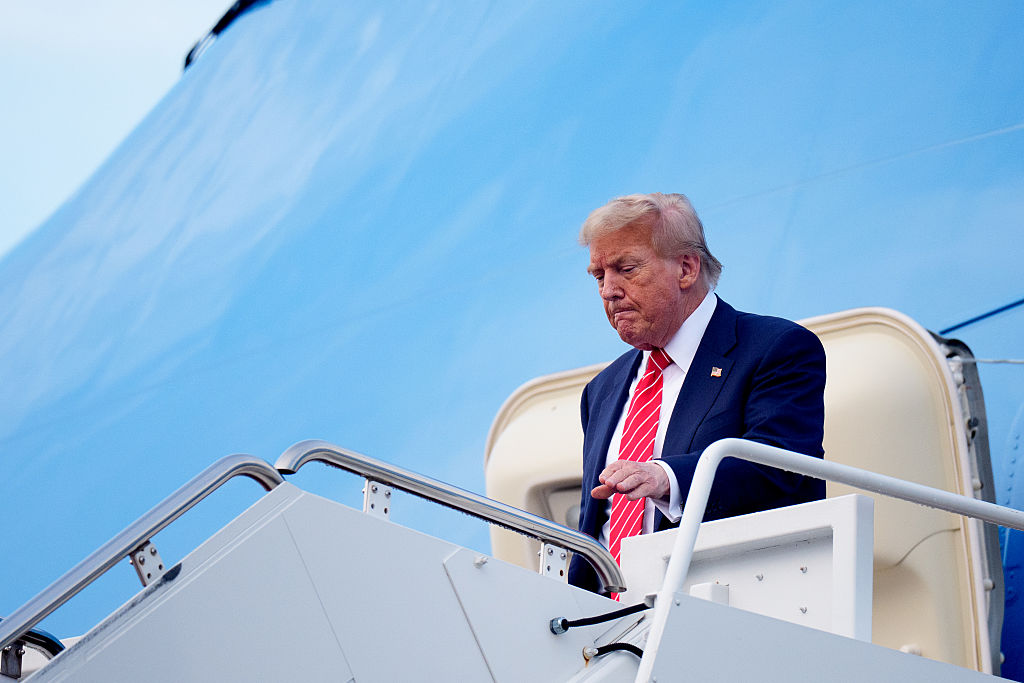Everybody knows Donald Trump is going to start a war. His critics have been saying so since his first year in office — remember the war with North Korea they predicted right after Trump tweeted about unleashing ‘fire and fury’ on the Little Rocket Man? That war didn’t happen. Nor did an insurgency break out when President Trump moved the US embassy in Israel to Jerusalem, an act that the Trump haters were certain would incite waves of violence and unquenchable turmoil. But maybe the third time’s the charm — maybe the killing of Gen. Qasem Soleimani, leader of the Quds Force division of Iran’s Revolutionary Guard, in a US airstrike in Iraq will finally give the president’s detractors the war they’ve been anticipating. Or maybe not — maybe the critics are just as wrong as they’ve been every other time: about wars that Trump didn’t start, about collusion with Russia that didn’t happen, about the crash of America’s economy…the list goes on. The president should be reassured to have enemies who are so reliably wrong. Iran’s Islamic revolutionary regime might well want revenge. But is avenging Soleimani worth risking the regime’s existence? If killing him was an act of war, is this a war Iran is prepared to fight and win? How, exactly? Iran couldn’t win a war with Saddam Hussein’s Iraq in the 1980s. Contrary to what neoconservatives might want you to think, Iran has not become a military superpower akin to Nazi Germany in the 30-odd years since then. Also contrary to what neoconservatives sometimes say, Iran is not irrational to the point of being suicidal. But some panicky anti-war supporters of President Trump have adopted this implausible view of Tehran. They think honor will demand that Iran retaliate, leading to out-and-out war. But nation-states are not 18th-century gentlemen fighting duels. Most regimes are concerned above anything else with their own survival. This is as true for Iran as it is for North Korea, another country which is not about to attack the United States, despite what much of the press and foreign-policy world would like you to believe. Are US forces in the Middle East in danger of being targeted by Hezbollah or other Iranian proxies? Here too the stakes are clear. President Trump ordered the strike that killed Soleimani because Iranian-backed demonstrators and militias were harassing the US embassy in Iraq and an American contractor was killed in a rocket attack on an Iraqi military base in December. The Trump administration has said that Soleimani was planning more mischief, which is easy to believe: far from being a martyr to peace and non-interventionism, Soleimani was a man whose business was fomenting war and insurgency. It’s tempting to call him an Iranian neoconservative. He was in Iraq on a mission of exporting revolution.There is a danger that ideological warhawks in the US and Iran alike will try to seize an opportunity here. Regimes may not be suicidal, but ambitious would-be leaders have a calculus of their own as to what risks are worth taking for their own advancement. And even provocations that annoy rather than harm the US will be hyped up by the warmongers in our own country to call for another regime-change war. Iran is not a military threat to the United States, but it is a large country — about four times the size of Iraq — and an invasion would be no easy undertaking. An occupation would pose even more difficulties, and the world’s strategic environment is much less propitious for US adventurism than it was at the time of the Iraq invasion in 2003. Russia, China, Turkey, and Saudi Arabia would all take maximum advantage of America’s distraction. India or Pakistan might do so, too.Donald Trump was elected to put Washington’s emphasis back on the well-being of Americans, rather than on the imperial politics of the Middle East. A war with Iran would be a betrayal of his mandate — a war that would lead to other wars and more prolonged occupation of the region. His domestic agenda, all his policies on trade and immigration, would fall by the wayside in the same fashion that George W. Bush’s did as a result of the Iraq War. He would become another war president, and another failed president. But killing Soleimani doesn’t make that inevitable — on the contrary, by itself Soleimani’s death brings an end to one of the villains whose role in stoking anti-American violence in the region made it harder for us to leave. President Trump has struck a blow for peace.
But nation-states are not 18th-century gentlemen fighting duels. Most regimes are concerned above anything else with their own survival. This is as true for Iran as it is for North Korea, another country which is not about to attack the United States, despite what much of the press and foreign-policy world would like you to believe. Are US forces in the Middle East in danger of being targeted by Hezbollah or other Iranian proxies? Here too the stakes are clear. President Trump ordered the strike that killed Soleimani because Iranian-backed demonstrators and militias were harassing the US embassy in Iraq and an American contractor was killed in a rocket attack on an Iraqi military base in December. The Trump administration has said that Soleimani was planning more mischief, which is easy to believe: far from being a martyr to peace and non-interventionism, Soleimani was a man whose business was fomenting war and insurgency. It’s tempting to call him an Iranian neoconservative. He was in Iraq on a mission of exporting revolution.There is a danger that ideological warhawks in the US and Iran alike will try to seize an opportunity here. Regimes may not be suicidal, but ambitious would-be leaders have a calculus of their own as to what risks are worth taking for their own advancement. And even provocations that annoy rather than harm the US will be hyped up by the warmongers in our own country to call for another regime-change war. Iran is not a military threat to the United States, but it is a large country — about four times the size of Iraq — and an invasion would be no easy undertaking. An occupation would pose even more difficulties, and the world’s strategic environment is much less propitious for US adventurism than it was at the time of the Iraq invasion in 2003. Russia, China, Turkey, and Saudi Arabia would all take maximum advantage of America’s distraction. India or Pakistan might do so, too.Donald Trump was elected to put Washington’s emphasis back on the well-being of Americans, rather than on the imperial politics of the Middle East. A war with Iran would be a betrayal of his mandate — a war that would lead to other wars and more prolonged occupation of the region. His domestic agenda, all his policies on trade and immigration, would fall by the wayside in the same fashion that George W. Bush’s did as a result of the Iraq War. He would become another war president, and another failed president. But killing Soleimani doesn’t make that inevitable — on the contrary, by itself Soleimani’s death brings an end to one of the villains whose role in stoking anti-American violence in the region made it harder for us to leave. President Trump has struck a blow for peace.
No, killing Soleimani doesn’t mean war
Maybe Trump’s critics are just as wrong as they’ve been every other time
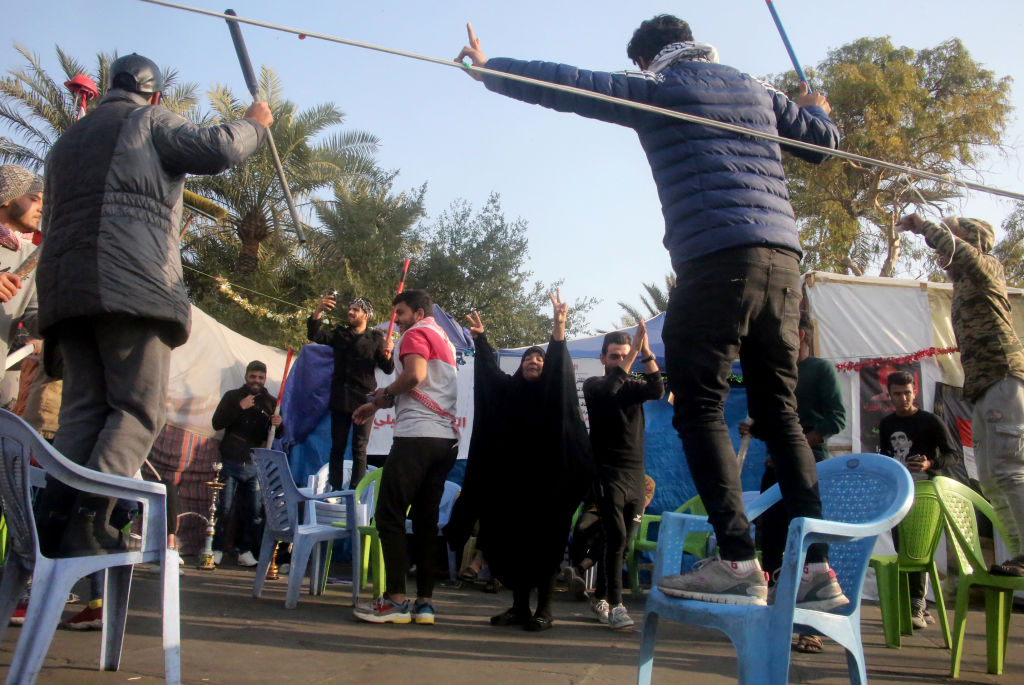
Iraqi anti-government protesters flash the V-sign of victory outside their protest tents in Baghdad’s Tahrir Square following news of the killing of Iranian Revolutionary Guards top commander Qasem Soleimani in a US strike on his convoy at Baghdad international airport
Everybody knows Donald Trump is going to start a war. His critics have been saying so since his first year in office — remember the war with North Korea they predicted right after Trump tweeted about unleashing ‘fire and fury’ on the Little Rocket Man? That war didn’t happen. Nor did an insurgency break out when President Trump moved the US embassy in Israel to Jerusalem, an act that the Trump haters were certain would incite waves of violence and unquenchable turmoil. But maybe the third time’s the charm — maybe the killing of Gen….
Comments
Share
Text
Text Size
Small
Medium
Large
Line Spacing
Small
Normal
Large









